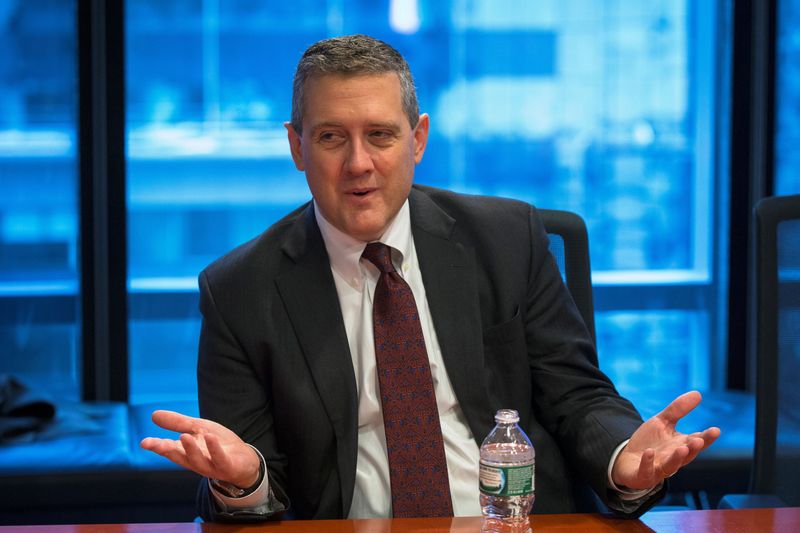By Lindsay (NYSE:LNN) Dunsmuir
(Reuters) -The Federal Reserve should stick to raising interest rates to lower inflation while the labor market remains strong, given the high probability recent financial stresses will continue to abate and absent a marked tightening of credit conditions, St. Louis Fed President James Bullard said on Thursday.
"We've got a long ways to go and I think inflation is going to be sticky going forward, it's going to be difficult to get inflation back down to the 2% target ... so we are going to have to stay at it in order to apply pressure to make sure inflation gets back down," Bullard told the Arkansas Bankers Association in Little Rock, Arkansas.
Bullard has previously said he has raised his estimate of how high the Fed's benchmark overnight interest rate needs to rise by the end of 2023 by a quarter of a percentage point to a 5.50%-5.75% range.
He long been in favor of reaching an endpoint for rates higher and faster than many of his fellow policymakers in order to quash inflation, which by the U.S. central bank's preferred measure is still running at more than twice the target rate.
At its last policy meeting, the Fed raised its benchmark overnight lending rate by a quarter of a percentage point to a 4.75%-5.00% range but indicated it may only need to raise it further by another quarter of a percentage point after the collapse of two U.S. regional banks caused jitters and raised expectations among most policymakers of a swifter slowdown in the economy as financial conditions tighten further.
Bullard, however, continued to remain skeptical of that view, seeing an 85% probability financial stresses will continue to ease and noting he doesn't think credit conditions will tighten enough to cause a recession.
"It's not clear to me that there will be much of a pullback on lending by these types of banks," Bullard told reporters after his speech in Little Rock. "As long as they have enough liquidity and enough capital they will just as likely go ahead and make those loans."
Economic data since the Fed's March 21-22 policy meeting has been mixed, with encouraging signs of a loosening in the labor market and a further abatement in high inflation tempered by both remaining too strong for comfort. The Labor Department's employment report for March is due to be released on Friday.
Bullard said this week's better-than-expected report on labor market openings still showed a job market that remained very strong by historical standards.

"It just seems like a very tight labor market ... and I think even if someone gets disrupted or there was somebody who was laying off workers or whatever, it seems like they can go get another job relatively easily in this environment."
Investors are almost evenly divided as to whether the Fed will keep its policy rate unchanged at its May 2-3 meeting or proceed with a quarter-of-a-percentage-point increase.